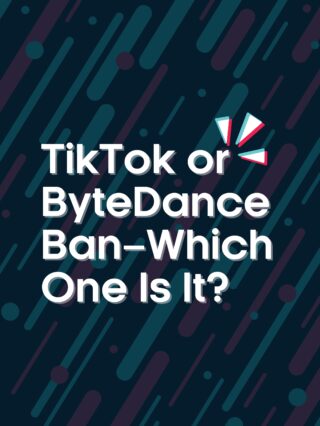In the early days of Google, the search giant embraced the unofficial motto, “don’t be evil.” This phrase became something of an internal rallying cry for the way the company should interpret its role in the world, but it was also widely understood as a stark point of contrast between the plucky new tech company and its more established tech peers, particularly Microsoft, which had at the time just been ruled an unlawful monopolist by the U.S. Government.
These echoes of tech history ring loudly in the just-released antitrust complaint from the U.S. Justice Department and 11 U.S. states that accuse Google of anticompetitive practices. The complaint points specifically to Google’s exclusive search relationships with Apple, Samsung, Verizon, and others, as well as its use of its Chrome browser and Android mobile operating system to increase its market share in search. The complaint even cites the Microsoft case and accuses Google of deploying “the same playbook” it once criticized.
“Hopefully, we won’t repeat the mistakes that Microsoft made, you know, ten years ago that ultimately led to all these things that happened with them,” then-Google CEO Eric Schmidt told Fox Business in 2009.
Today, Google is being accused of employing the same anti-competitive practices and operating as a monopoly. It would seem that the aspirations of a plucky tech start up and the pressures of a publicly traded tech giant were doomed to find themselves at odds. In fact, Google effectively removed any significant reference to the “don’t be evil” motto from their documentation in 2018. None of this is to say that Google’s actions are evil (or that Microsoft’s actions in the ‘90’s were evil for that matter).
This action against Google is not a battle in the war of good vs. evil, but rather an ongoing wrestling match over the role of private enterprise in infrastructure that is critical to the public’s experience of modern life. The complaint is based on The Sherman Act of 1890, which was written to combat concentrations of power in critical economic sectors like railroads, oil, and steel. The law was used again in the 1980’s to breakup AT&T’s monopoly position. All of this was aimed at addressing concentrations of power in areas that people consistently rely on.
Viewed through this lens, the antitrust action focused on Google’s search business comes into focus as likely just the opening salvo in a looming power struggle between the government and the largest U.S. tech companies. Added together, Google, Facebook, and Amazon control a huge portion of the Internet—inarguably the most important piece of infrastructure in the modern world. This impacts the information we consume, the things we buy, the way we interact with one another, and so much more. Even if we give these giant companies the benefit of the doubt and assign to them the best of intentions, this immense amount of power concentrated in such a small group of for-profit enterprises is unsettling.
If you read the government’s complaint, this level of anxiety occupies the space between the lines on every page. It lists the billions of dollars that Google pays to mobile device manufacturers like Apple and Samsung to have Google search set as the default search engine and displayed prominently on their smartphones out of the box. That doesn’t seem like some nefarious practice; its merely a company leveraging its financial position to grow market share. However, when that company’s financial position is exponentially stronger than that of its rivals, its market share is already prohibitively dominant, and the space in which it operates is vital to the everyday lives of consumers, it’s not hard to see how competition and consumer choice could be degraded.
The real problem with where we find ourselves today is that the government is far too late in addressing this emerging problem. These tech companies have been an American success story, contributing mightily to the economy and the lives of Americans. They’ve had an external face characterized by altruism. Google wants to organize the world’s information. Facebook wants to bring the world closer together. Amazon strives to be the earth’s most consumer-centric company. The government has been a bit moonstruck by all of this, while simultaneously being ill-equipped to grasp the technological implications at hand. It has resulted in serious neglect of common-sense regulation of this new breed of company, and we are all feeling that pain. Just look at the congressional hearings that have taken place over the last few years—all of them bursting at the seams with misunderstanding and frustration.
And so here we are. Instead of effective regulation, we have a legal battle. Google is now faced with the decision to go to war with the government over this and risk being broken into smaller pieces like AT&T or to take the path that Microsoft did after 21 years of fighting and accept a settlement and consent decree that would result in revised business practices going forward. Amazon, Facebook, and others will be watching that carefully for clues on what might come next.
The bigger point, though, is that we desperately need an updated regulatory environment to meet these modern challenges. Legal action based on a 19th-century law hardly seems like an appropriate long-term solution. The government should have been paying more attention to looming antitrust issues when Google bought YouTube, Facebook bought Instagram, and Amazon gobbled up Whole Foods. While it’s unfortunate that we all have to watch a fight to correct that, there is at least hope that this action will bring these companies and the government together to find sustainable solutions. As much as we all might love technology, we’ve seen what happens when we rely on these companies to “not be evil” on their own.





